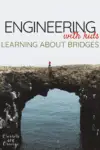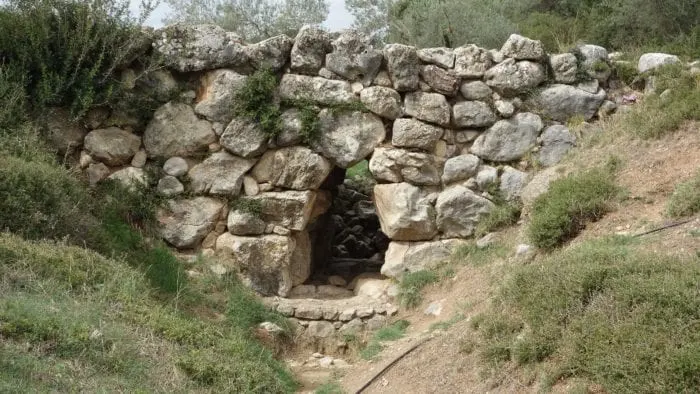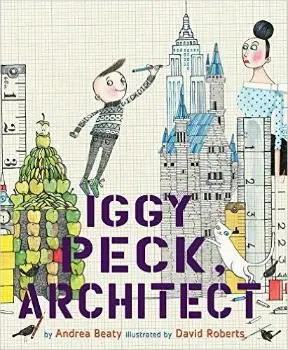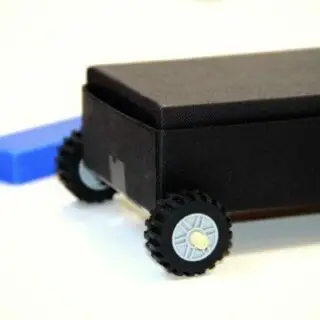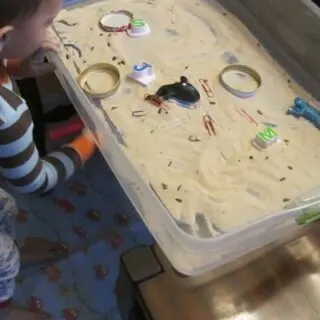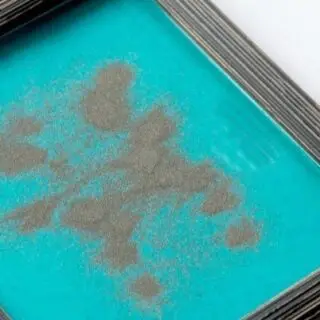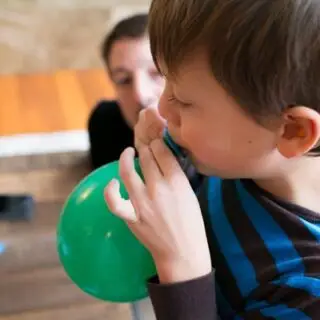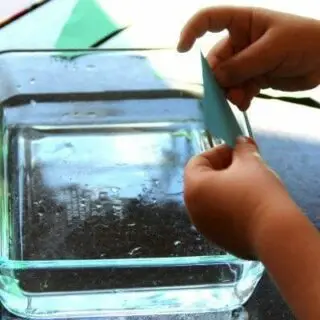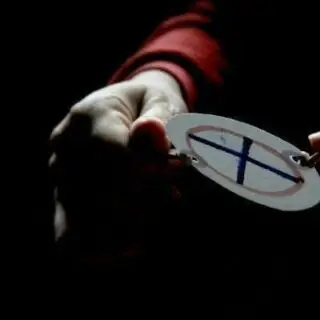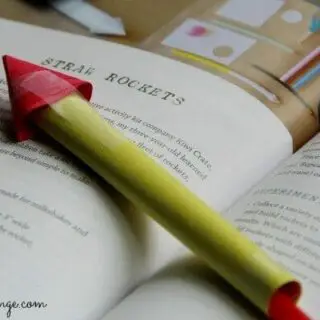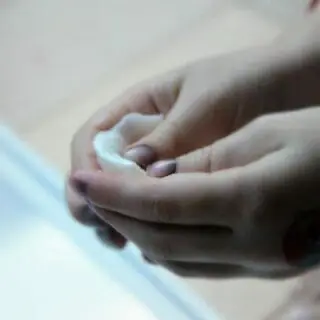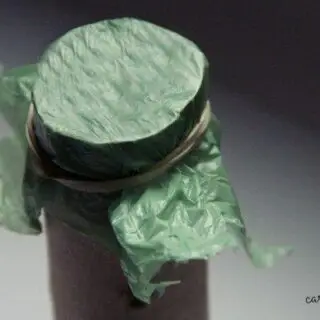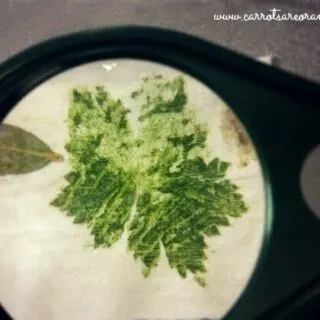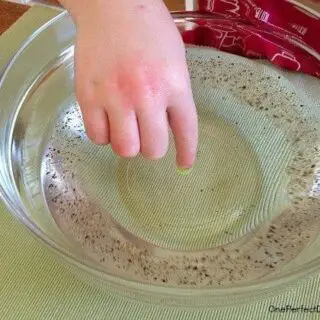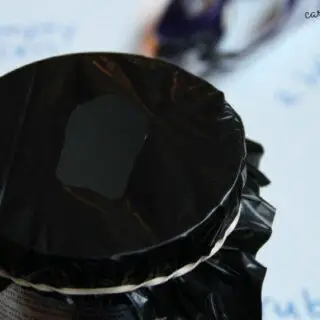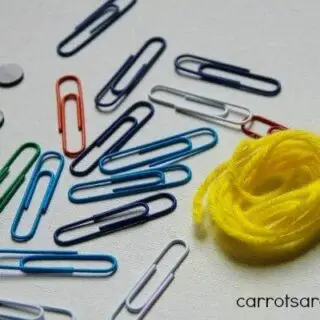Bridges are amazing structures that allow people and vehicles to cross over large gaps, like a river or a canyon. Bridges can be made from many different materials, including metal, wood, and concrete.
In this blog post, we will discuss the history of bridges and how kids can learn about engineering by building their own bridges!
Young children are budding engineers if we let them. This post introduces kids to the science of bridges and hopefully inspires you to do a few preschool bridge activities.
{Thanks to Brian Galindo’s “15 Wonderful Quotes about Life from Children’s Books” for this image.}
My sons adore the book, Iggy Peck, Architect by Andrea Beaty. There is so much joy in watching their desire to learn more ignite right in front of my eyes.
We have wonderful building blocks, we have legos and we certainly spend loads of time outside using natural objects to build and create.
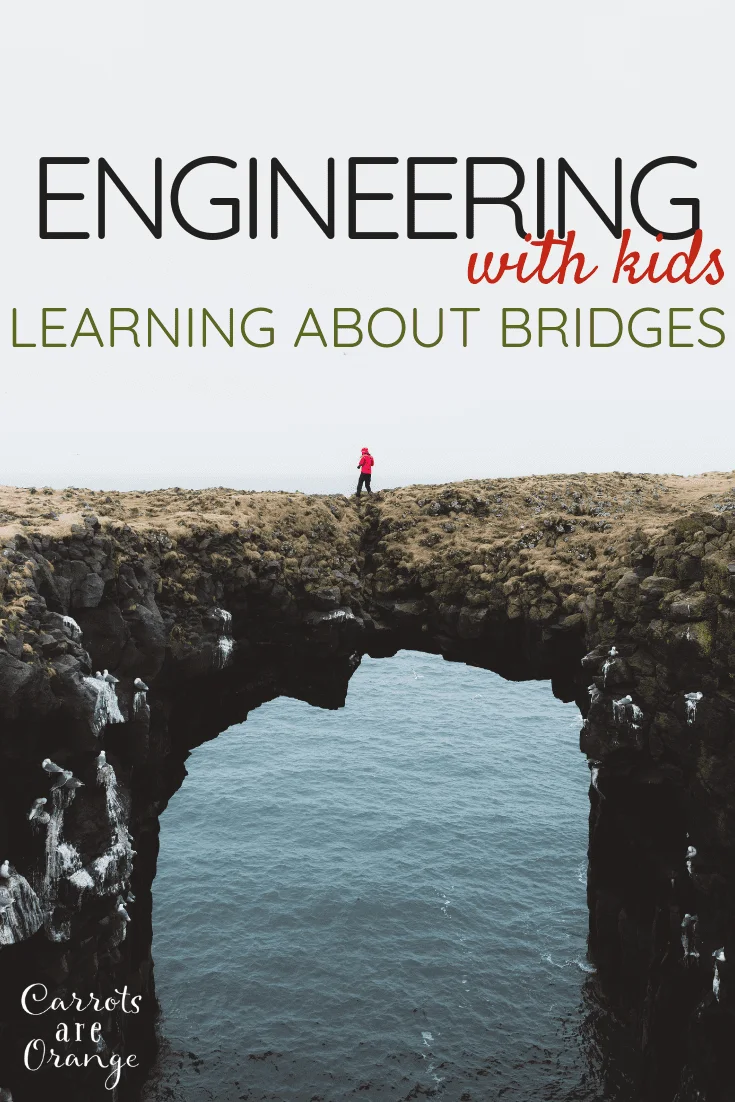
The opportunities are endless. My 3-year-old uses materials that we adults would never think to use to create and imagine new things. This post includes ideas on how to learn about bridges with kids.
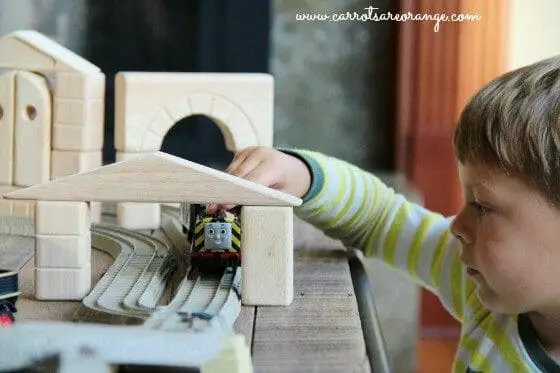
“Our greatest natural resource is the minds of our children.” ~ Walt Disney
Learning about Bridges
If you’re a parent or educator wanting to bring this type of excitement and learning into your environment, beginning the journey is quite simple.
Get your hands on Andrea Beaty’s books. Many libraries will have these books but as always Amazon offers the books at great prices.
Types of Bridges for Kids
There are several types of bridges about which learning more details is time well spent. Here are a few bridge definitions.
These six bridges are the main types. If you’d like to see the myriad of bridges all around the world, check out this ultimate list of bridges.

Arch
An arch is the main structural component, which is always located below the bridge, never above it. The core component of the arch bridge is its abutments and pillars, which carry the weight and force of the entire bridge structure.
Beam
This bridge is the most simple and thus was the first type of bridges to be built historically. One or many horizontal beams span an area between abutments or relieve some of the pressure on structural piers.
The core force that impacts a beam bridge is the transformation of vertical force into shear and flexural load that is transferred to the support structures.

Cantilever
This bridge is somewhat similar in appearance to arch bridges. However, they support their load not via a vertical bracing but through diagonal bracing with horizontal beams that are supported on one end only.
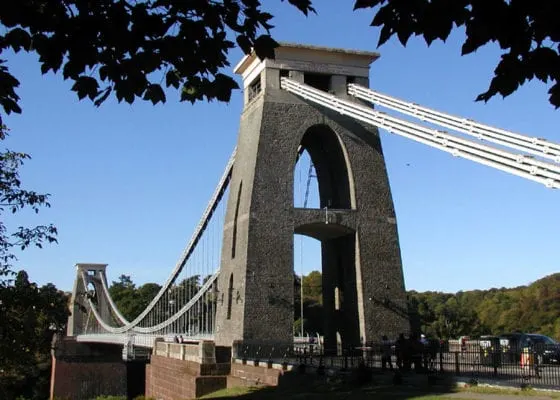
Suspension
Suspension bridges utilize ropes or cables spreading from the vertical suspenders to hold the weight of bridge deck and traffic. The Golden Gate Bridge is an example of a suspension bridge.
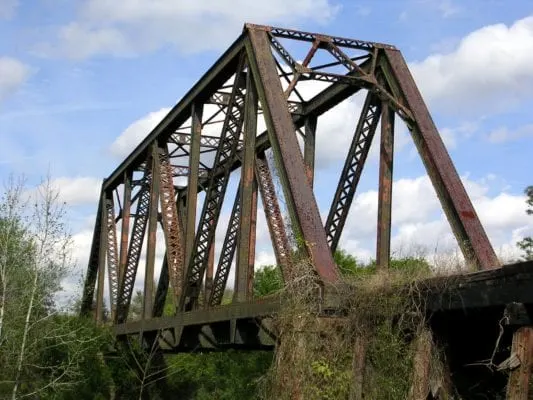
Truss
This type of bridge uses a diagonal mesh of triangle-shaped posts above the bridge to distribute forces across almost the entire bridge structure. Source: History of Bridges
Facts about Bridges
World’s Longest Bridge
Danyang-Kunshan Grand Bridge on the Beijing-Shanghai High-Speed Railway in China is over 100 miles long, is the longest in the world.
World’s Tallest Bridge
Millau Viaduct over the River Tarn in southern France (343 meters high) is the tallest bridge in the world. It is of the cable-stayed type.
World’s Oldest Bridge
Slab-stone bridge over River Meles in Izmir, Turkey was built in 850 BC, thus making it the world’s oldest bridge. Although the Mycenaean Arkadiko Bridge in Greece is the oldest existing arch-shaped bridge dating around 1300 BC.
Largest Arch Bridge
The Chaotianmen Bridge in Chongqing, Southwest China is the largest through arch bridge in the world. It is 1741 meters in length. Source: Science Struck
Did you know? The longer a beam bridge, the weaker it is. Typically, beam bridges are not more than 76 meters long.
Read this Children’s Book about Building
“Our greatest glory is not in never failing, but in rising up every time we fail.” ~ Ralph Waldo Emerson
Create the Environment & They Will Build
My sons took this book and ran with their imaginations. They began grabbing materials to build without my intervention. Children will do that if you create an environment for them to do so. Creating a bridge activity for students doesn’t have to be difficult. Kids will surprise you with
Bridge Building Games
- Build a library of books about children using their imaginations to create and invent
- Use the growth mindset. Support and encourage the child, even when failure happens
- Go outside and invite children to gather items with which they wish to build
- Engineering a bridge can happen with materials found in our homes and classrooms. Leave baskets of paper, paperclips, pennies, blocks, straws, or any material with which a child may be able to explore and build.
- Include a control chart of an example of what they can do with these materials. Your goal should be to create an invitation for the children to build whatever they wish. Build a bridge out of craft sticks, popsicle sticks, a deck of cards, paper, and toothpicks. Yes, a bridge can be made from strong paper structures!
- Plan an excursion to a bridge, either on your own study and define the type of bridge, or perhaps there is a bridge with staff in your area willing to take the children behind the scenes like the Tacoma Narrows Bridge in Washington
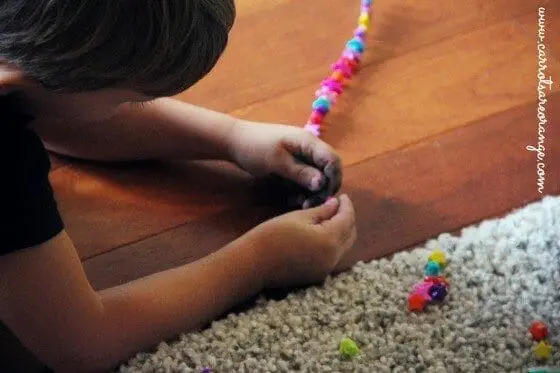
“You can’t use up creativity. The more you use, the more you have.” – Maya Angelou
Explore these Lesson & Activity Resources
- Types of Bridges Montessori 3 part Cards
- Activities from the Rochester Bridge Trust
- Teacher’s Guide for Iggy Peck, Architect by Andrea Beaty
- The Exploratorium
- Simple Paper Bridge Activity
- Straw Truss Bridge
- Easy Arm Cantilever Bridge
- Build a Bridge Activity from Kids Activities Blog
- Engineering Books for Kids
Thanks for visiting!
Marnie

